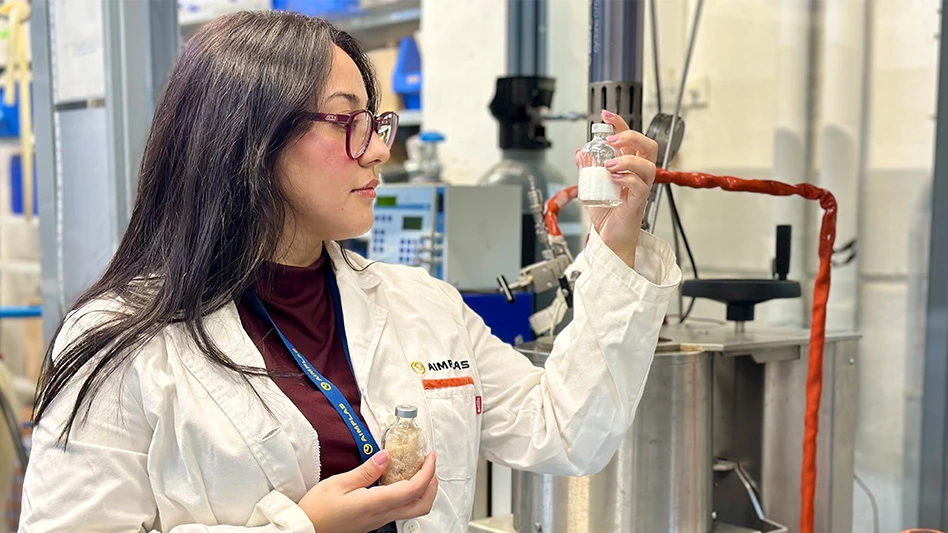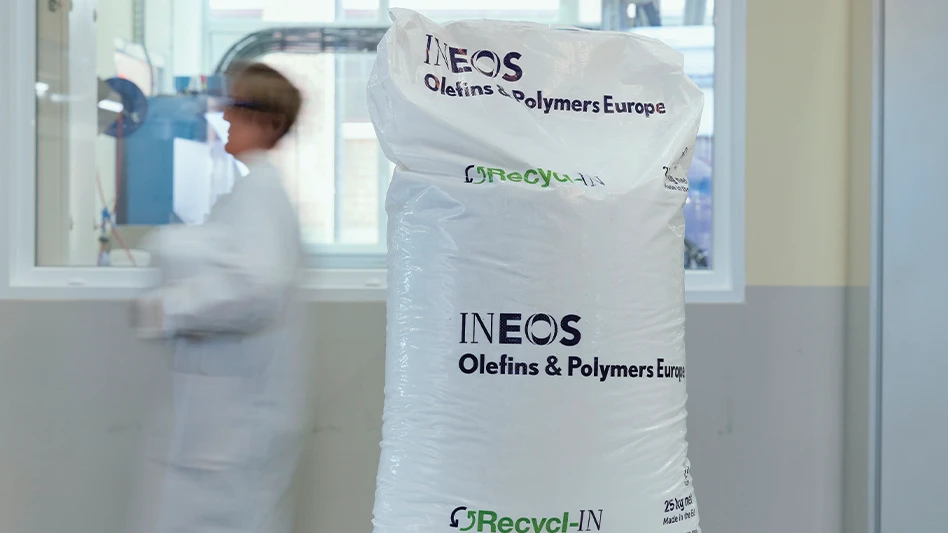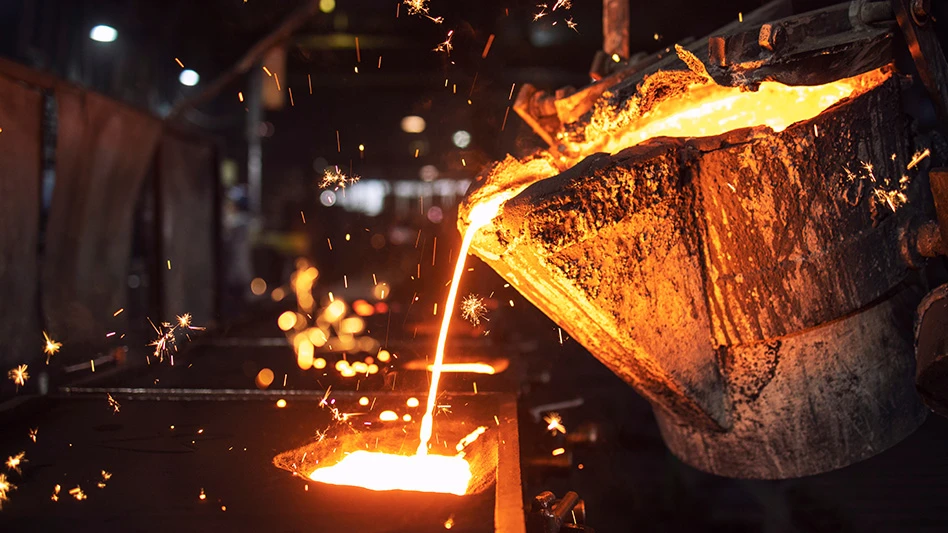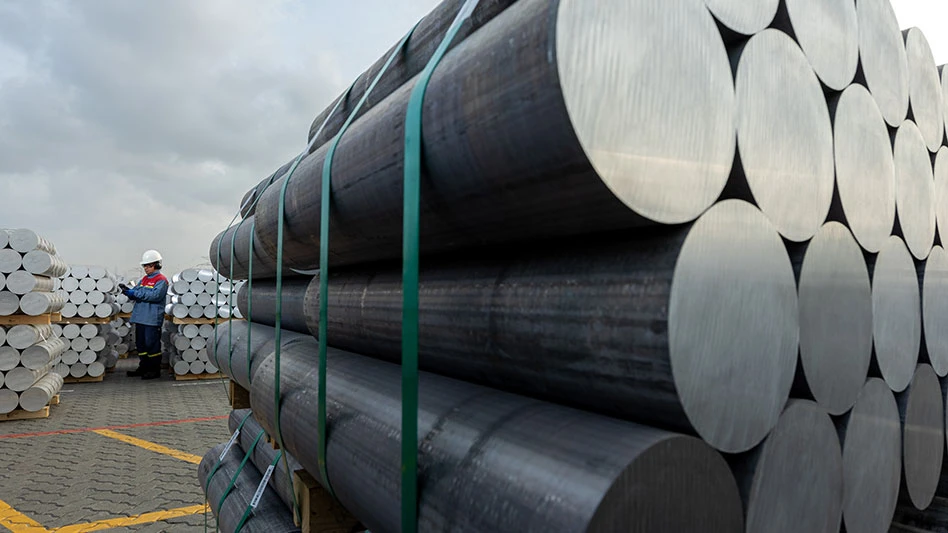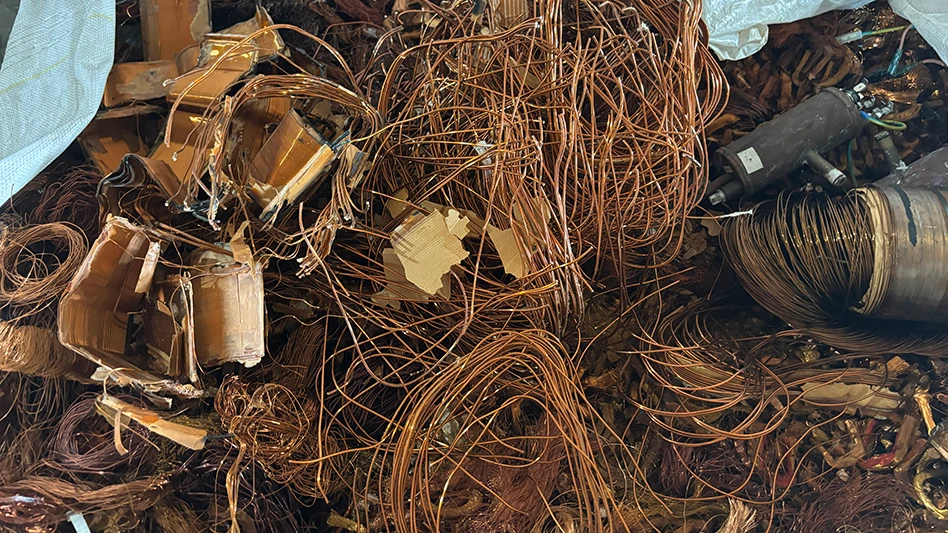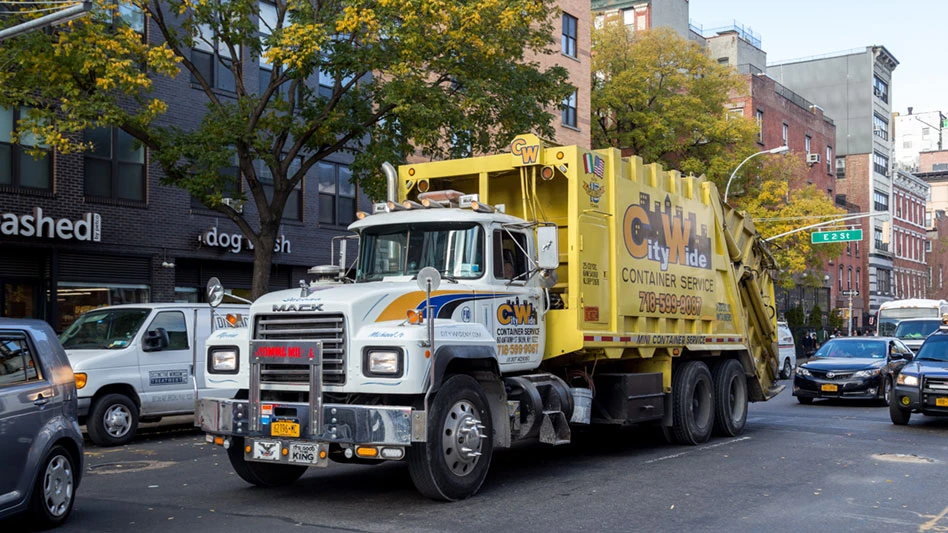
Photo courtesy of Aimplas
Aimplas, a Spain-based technological center that provides solutions to the plastics industry, says it is leading the Bioprocess project, which aims to improve the mechanical and barrier properties of bioplastics to produce films for high-performance flexible packaging in sectors such as food, cosmetics and personal hygiene, detergents and cleaning. The organization says the research involves a collaboration between Potato Bioplastics, a manufacturer of new bioplastics from renewable sources, and Gaviplas, a flexible film manufacturer.
Alicia Naderpour, packaging researcher at Aimplas, says, “In Bioprocess, we have adopted the one-step approach for producing films from natural polymers, as it offers significant advantages in terms of efficiency, sustainability, product quality and preservation of the natural properties of the materials. Additionally, the goal is to enhance the properties of bioplastics by orienting polymer chains for packaging applications without compromising their biodegradability and/or compostability.”
The use of bioplastics in the packaging sector, she adds, “is proposed as an alternative to conventional plastics in cases where food residues remain in the packaging, making recycling difficult. Therefore, using bioplastics in such applications allows for the organic recovery of packaging waste to produce high-quality compost.”
In the Bioprocess project, Aimplas has applied machine direction orientation (MDO) extrusion technology with various commercial bioplastics to produce the flexible biodegradable and/or compostable films. It has also developed new formulations of natural polymers, such as polysaccharides and animal and plant proteins, to study the modification of their mechanical and barrier properties when processed through non-oriented sheet extrusion and MDO extrusion.
These naturally sourced materials may come from algae, corn or potato starch, gelatins or proteins, and in many cases are by-products of various industries, adding value to these low-cost materials and making them good candidates for use in sustainable packaging applications.
Rosa González, lead researcher of the Packaging Cluster at AIMPLAS, says, “The use of chemically unmodified natural polymers is gaining ground in these applications, as they are suitable for manufacturing packaging and plastic products that are banned under the single-use plastics directive. However, these materials must have the appropriate characteristics to be processed using conventional packaging manufacturing technologies, such as extrusion processing, and must also meet the necessary requirements to preserve the products they contain.”
The Bioprocess project is part of the 2024 call for aid aimed at technology centers in the Valencian Community for research and development projects in collaboration with companies, promoted by the Valencian Institute of Competitiveness and Innovation (IVACE+i), with funding from the European Union’s European Regional Development Fund (ERDF) under the 2021–2027 Operational Program.
Alicia Naderpour, packaging researcher at Aimplas, says, “In Bioprocess, we have adopted the one-step approach for producing films from natural polymers, as it offers significant advantages in terms of efficiency, sustainability, product quality and preservation of the natural properties of the materials. Additionally, the goal is to enhance the properties of bioplastics by orienting polymer chains for packaging applications without compromising their biodegradability and/or compostability.”
The use of bioplastics in the packaging sector, she adds, “is proposed as an alternative to conventional plastics in cases where food residues remain in the packaging, making recycling difficult. Therefore, using bioplastics in such applications allows for the organic recovery of packaging waste to produce high-quality compost.”
In the Bioprocess project, Aimplas has applied machine direction orientation (MDO) extrusion technology with various commercial bioplastics to produce the flexible biodegradable and/or compostable films. It has also developed new formulations of natural polymers, such as polysaccharides and animal and plant proteins, to study the modification of their mechanical and barrier properties when processed through non-oriented sheet extrusion and MDO extrusion.
These naturally sourced materials may come from algae, corn or potato starch, gelatins or proteins, and in many cases are by-products of various industries, adding value to these low-cost materials and making them good candidates for use in sustainable packaging applications.
Rosa González, lead researcher of the Packaging Cluster at AIMPLAS, says, “The use of chemically unmodified natural polymers is gaining ground in these applications, as they are suitable for manufacturing packaging and plastic products that are banned under the single-use plastics directive. However, these materials must have the appropriate characteristics to be processed using conventional packaging manufacturing technologies, such as extrusion processing, and must also meet the necessary requirements to preserve the products they contain.”
The Bioprocess project is part of the 2024 call for aid aimed at technology centers in the Valencian Community for research and development projects in collaboration with companies, promoted by the Valencian Institute of Competitiveness and Innovation (IVACE+i), with funding from the European Union’s European Regional Development Fund (ERDF) under the 2021–2027 Operational Program.
Latest from Recycling Today
- SHFE trading expansion focuses on nickel
- Maverick Environmental Equipment opens Detroit area location
- International Paper completes sale of global cellulose fibers business
- Building a bridge to circularity
- Alton Steel to cease operations
- Nucor finishes 2025 with 14 percent earnings decline
- Algoma to supply Korean shipbuilder
- Improving fleet maintenance management across multiple locations
